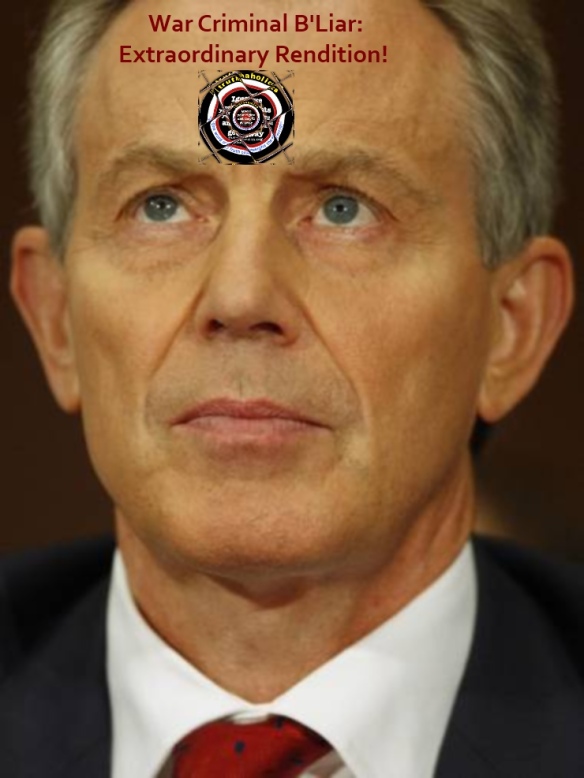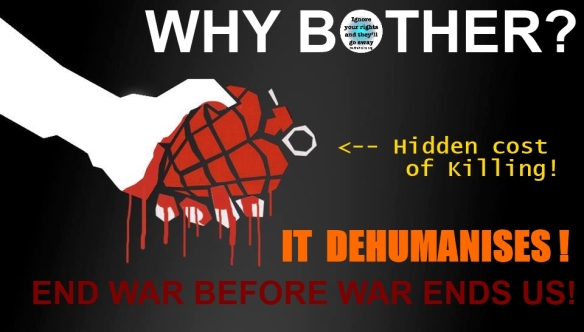A Very British Cover-Up ~ Matt Carr’s Infernal Machine.
It’s the festive season and folks probably don’t want to hear about the complicity of the British government’s involvement in illegally kidnapping terrorist suspects and flying them around the world to be tortured by dictators.
Such things leave a bad taste in the mouth, and make the moral high ground suddenly slippery and precarious, especially for those who continue to believe that our government has been engaged in an elevated moral struggle on behalf of our democratic values and ‘way of life’ against the enemies of freedom.
Nevertheless, bad news doesn’t always come when we want to hear it, but it sometimes comes when the government doesn’t want us to pay any attention to it.
On Thursday, with the nation winding down and xmas shopping, retired judge Sir Peter Gibson completed a review of 20,000 top secret documents pertaining to allegations of involvement by MI5 and MI6 officers in the American ‘extraordinary rendition’ program introduced in the aftermath of 9/11.
Sir Peter concluded from his study of these documents that:
‘It does appear…that the United Kingdom may have been inappropriately involved in some renditions. That is a very serious matter. And no doubt any future inquiry would want to look at that.’
Maybe, but that doesn’t mean that the British establishment wants to. The government has announced that the ’27 issues’ identified by Sir Peter as worthy of concern will be investigated by the Parliamentary Intelligence and Security Committee (ISC), a body which the intrepid investigator Chris Ames has called ‘ toothless, clawless, and clueless.’
One of the suspects rendered was the Islamist Libyan fighter Abdul-Hakim Belhaj, who alleges that he was ‘rendered’ by the CIA in Kuala Lumpur, then to Bangkok while flying from China to the UK with his pregnant wife to claim asylum, and flown to back to Libya, where he was tortured.
Belhaj was a member of the Libyan Islamic Fighter Group (LIFG), consisting mostly of veterans of the Afghan mujahideen who were looking to overthrow Gaddafi. But this was before the world decided that Gaddafi’s regime was an oppressive dictatorship and helped overthrow it.
In those days Libya was just one of various countries, such as Syria and Egypt, to which prisoners in the ‘war on terror’ could be flown precisely because those countries were oppressive dictatorships that were able to do things to their prisoners that our chaps generally preferred not to do in their own countries.
Golden days, and Belhaj got the full treatment. He was imprisoned for seven years in the notorious Abu Salim prison, during which time he was repeatedly beaten and kept in solitary in a dark room.
Since then documents found in Libya suggest that the head of M16 Sir Mark Allen provided the CIA with the intelligence that led to his abduction, and that British intelligence agents may have provided his Libyan interrogators with questions they wanted to ask him.
Belhaj was released in 2010 under a ‘de-radicalization’ amnesty presided over by Saif Gadaffi. In 2011 he became a de facto ally of the UK during the overthrow of Gaddafi he has since been trying to sue Jack Straw, Allen, and the British Foreign Office. The lawsuit involved £3 million in damages, but Belhaj has since declared that he will only ask for £1 pound, and that what he wants is for British complicity to be revealed.
Yesterday however, Mr Justice Simon announced that this is not going to happen, and that Belhaj’s case cannot go forward.
The judge conceded that Belhaj had a ‘potentially well-founded claim that the UK authorities were directly implicated in the extra-ordinary rendition of the claimants’. He also noted that a court of law rather than the ISC was the proper forum to pursue his allegations. Nevertheless, he rejected this possibility because – you guessed it – it would ‘jeopardize national security.’
More specifically, Judge Simon has pointed out the fact that American officials were also involved would damage the ‘national interest’ insofar as British relations with the United States are concerned.
And anyway, he says, the case is ‘non-justiciable’ in the UK because it involved officials in China, Malaysia, Thailand and Libya.
In other words, it’s ok for UK intelligence officers to kidnap or torture someone, and even for the government to sanction actions abroad that it knows to be illegal, as long there is an American involved, or these actions take place abroad and therefore become ‘non-justiciable’ in the country that colluded with them.
It is rather neat, when you think about it. But something tells me that our crusty and unaccountable establishment doesn’t want anyone to think about it too much.
Something tells me that it would like the public to put its feet up and take comfort in the thought that the security agents who are working night and day to ‘keep us safe’ from the terrorists who hate our values can do whatever they want, whenever they want, in accordance with the highest principles of an advanced democracy.
And if the government deems it necessary from time to time to depart from these practices, and send someone off to have their feet or testicles beaten, that is not something that concerns us.
Because reasons of state are not for public consumption. Is that clear? Good. Now off you go and enjoy your Christmas.
And remember, that we really are the good guys in this.
________________________________________________________________________
Related articles
- Abdel Hakim Belhaj: justice barred for Libyan dissident, say lawyers (theguardian.com)
- Abdel Hakim Belhaj torture case may be heard in secret court (guardian.co.uk)
- High court is urged to scrap Libyan’s claim that UK spies aided torture (theguardian.com)
- Libyan politician to fight UK attempt to keep role in his rendition secret (theguardian.com)
- GCHQ accused of monitoring privileged emails between lawyers and clients (wikileaks-forum.com)
- UK considers rendition damages offer (bbc.co.uk)
- GCHQ Accused Of Monitoring Privileged Emails Between Lawyers And Clients (infiniteunknown.net)
- GCHQ ‘intercepts’ privileged emails of Libyans suing UK over rendition (rt.com)
- Panel chaired by former Bush official criticises US-UK rendition of Gaddafi opponents (feedproxy.google.com)







